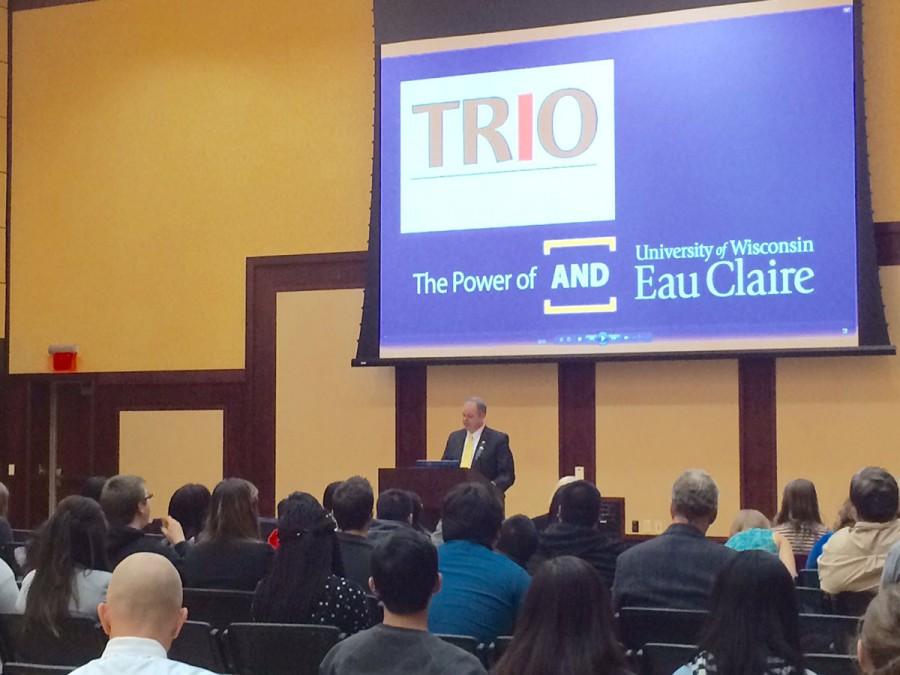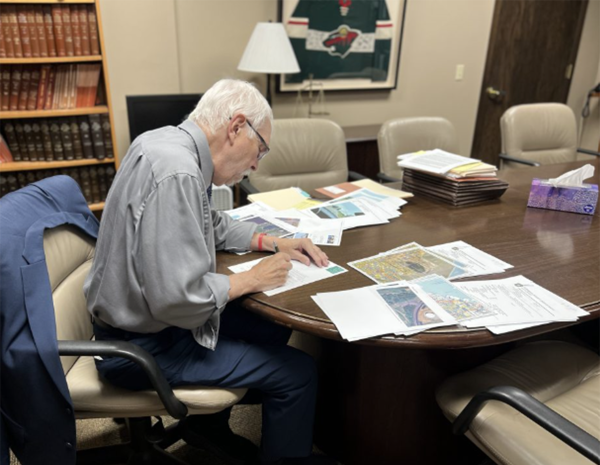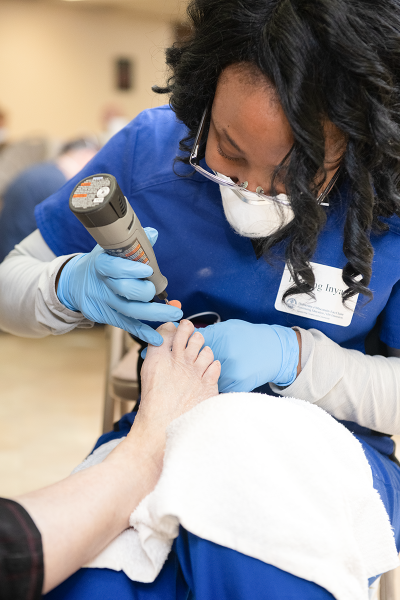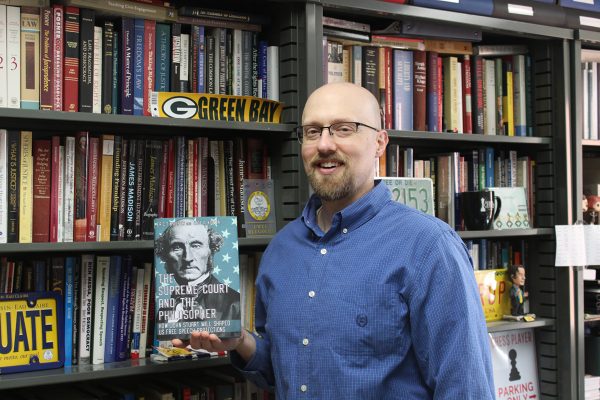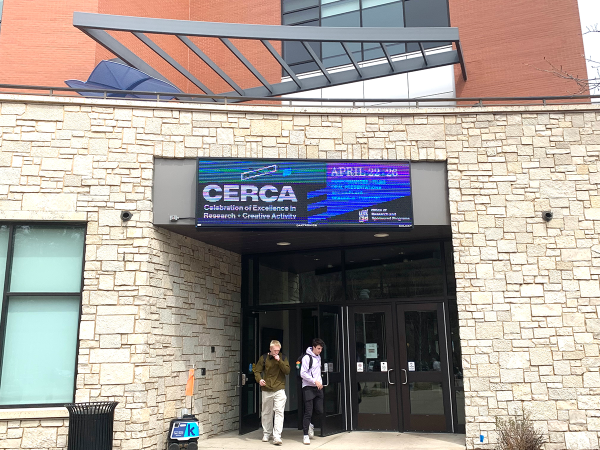Students and staff awarded on National TRIO Day
TRIO program helps students from struggling backgrounds succeed at UW-Eau Claire
More stories from Hannah Pitzl
Photo by Hannah Pitzl
James C. Schmidt started off the TRIO Awards Ceremony with an introduction and proclamation.
UW-Eau Claire recognized National TRIO Day with an awards ceremony Tuesday in the Ojibwe ballroom in Davies to honor students and staff members who have gone above and beyond within the TRIO program.
The event started with refreshments and time to socialize before the introduction of attending university officials and proclamation began. A short slide show and the award ceremony followed shortly after.
Director of the Student Support Services program, Bruce Ouderkirk, said Celebrating National TRIO Day started in 1986 to bring attention to students who participate in the federal TRIO programs. There are four TRIO programs at Eau Claire.
“It helps provide positive reinforcements for students who have worked really hard, and have had some outstanding achievement during their time in school,” Ouderkirk said.
The TRIO programs on campus consist of the Upward Bound program, the Ronald E. McNair Post-Baccalaureate Achievement program and two Student Support Services programs.
“The commonality between these programs, even though they serve slightly different populations and provide different kinds of services,” Ouderkirk said, “is to provide some educational opportunity to students that might not otherwise be able to complete a college education,”
Ouderkirk explained that the Upward Bound program provides services specifically to high school students in order to prepare them for a college education, and the McNair program works with college juniors and seniors on campus to prepare them to enter graduate programs.
Furthermore, Eau Claire has two Student Support Services programs. Ouderkirk said one of them primarily works with approximately 300 first generation students from lower income households, and the other strictly works with about 100 students with disabilities.
Both programs make sure these students are successful through their college education, Ouderkirk said.
“We provide real intensive academic advising, career counseling for students to help them try and set clear definite career goals,” Ouderkirk said. “The programs often provide academic assistance like tutoring to help with some of the more difficult courses they might be taking.”
Ouderkirk voiced that the term “TRIO program” refers to educational opportunity programs that are administered through the U.S. Department of Education, and that students are broadening their horizons by being involved in the program.
“Personally I have received academic help and also career advice. I didn’t know what I wanted to do when I got here, but just through their services I was able to figure it out,” said Stephanie Cisewski, president of the Student Support Services Advisory Board. “Now I’m happy with my choice to be a teacher.”
Now a senior MCE elementary education student, Cisewski is confident in the TRIO program’s ability to help students.
“It really helps students feel comfortable where they’re at,” Cisewski said. “They provide so many services to all the students, and it’s really beneficial to everyone who’s in the programs.”

